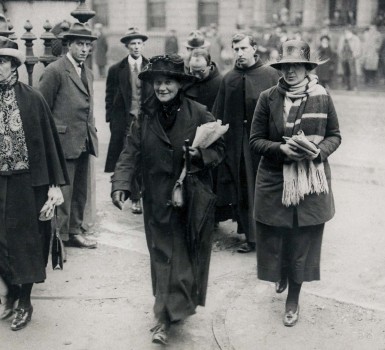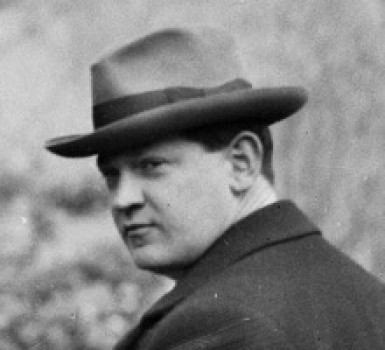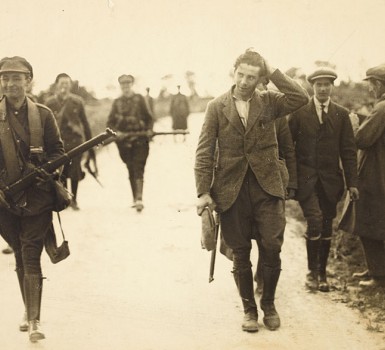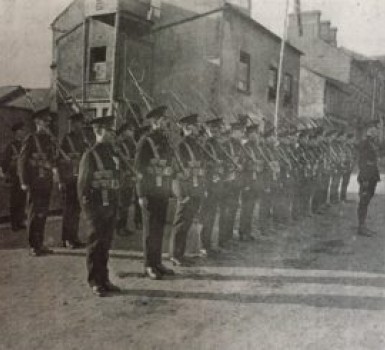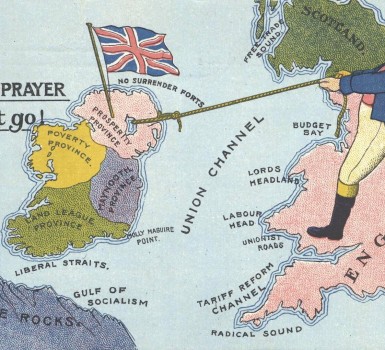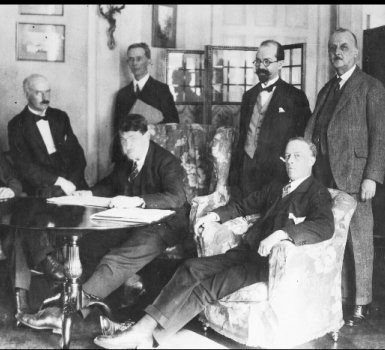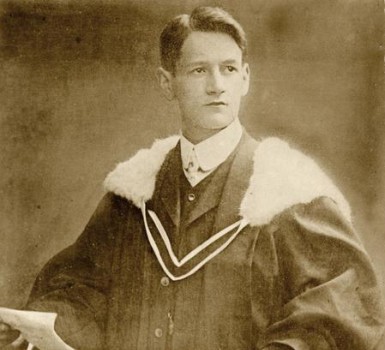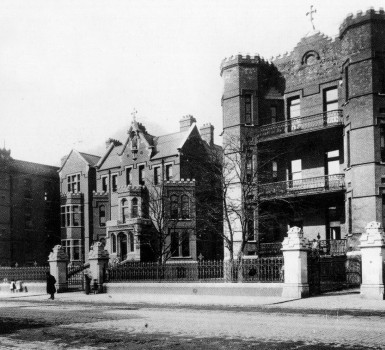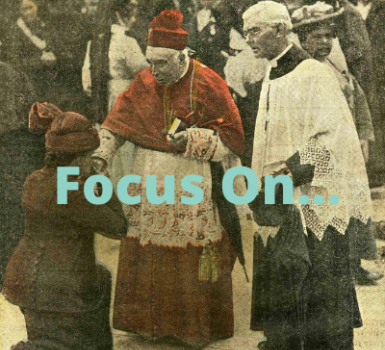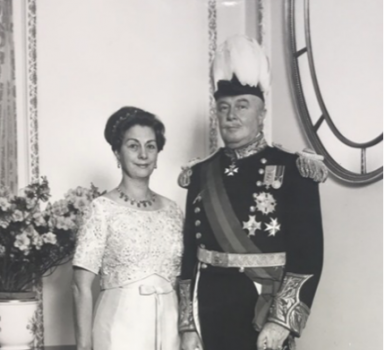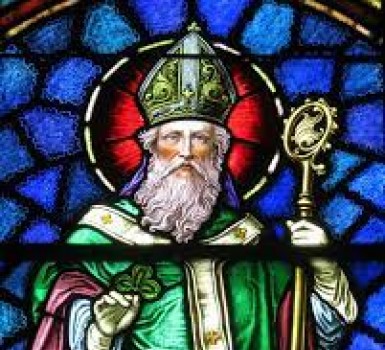Focus On ... Majorities: Northern Unionists
18 March 2021
.png)
This post marks the first installment in our ‘Focus On’ series, which will explore different themes surrounding partition, the political events of 1920–22, and the creation of Northern Ireland. Here Dr Ryan Mallon (Queen’s University Belfast) examines contemporary views of the Northern Unionist majority.
The 1920 Government of Ireland Act created two parliaments in Ireland: one in Belfast, which would govern a Protestant and Unionist majority in the six north-east counties of Antrim, Armagh, Down, Londonderry, Fermanagh and Tyrone, and one in Dublin, which would govern the remaining, majority Catholic and nationalist 26 counties. In doing so, the Act also established two religious and political minorities on the island, with northern Catholics and southern Protestants separated by the border from the state most closely associated with their cultural identity.
The prospect of Ireland being divided into two states, one Protestant and one Catholic, was made even more apparent following the results of the first election to the Northern Ireland parliament in May 1921. Despite using the Proportional Representation Single Transferable Vote (PR-STV) system, included to prevent minority voices from being marginalised, Unionists took 40 of the 52 seats in the House of Commons, with Sinn Féin and the Nationalists taking 6 each.
The Unionists, who for a decade opposed Home Rule for any part of Ireland, could now rest easy in their new northern parliament. Unionist leaders such as Edward Carson and James Craig, however, stressed that despite its overwhelming majority the new government in Belfast would be based on tolerance and with the aim of cultivating good relations both within the new Northern Ireland state and with their southern neighbours. Northern nationalists, on the other hand, were not convinced. Some feared discrimination at the hands of the new Orange-hued Protestant ‘Ascendancy’. Others didn’t recognise the new state and believed that the ongoing conflict with Britain, the War of Independence, would alter what the Government of Ireland Act had decreed in 1920, changing the makeup of partition, if not eradicating it altogether.
Below you can find a series of reports and speeches from 1921 which each give a different snapshot as to how Unionists – and their opponents – viewed themselves in the new Northern Ireland state.
Edward Carson’s resignation speech, Ulster Unionist Council meeting, 4 February 1921
(Irish Independent, 5 February 1921)
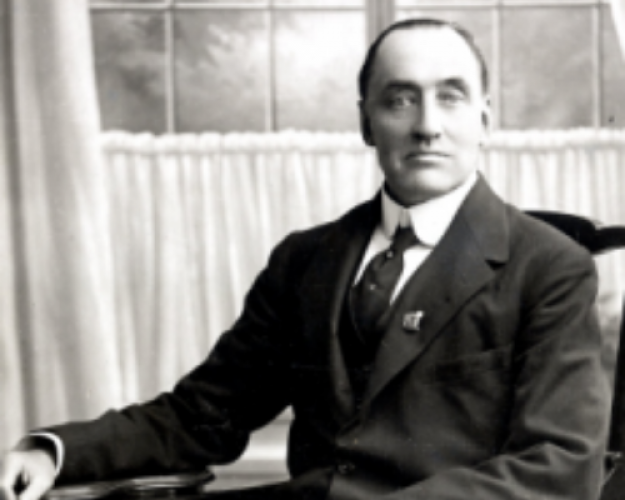
Having their own Parliament in Ulster they would no longer be a pawn in the political game. He appealed to them to give his successor the same loyalty that they had accorded him, and to have the same unity as in the past.
As to the future, ‘you must recollect,’ he said, ‘that if you are in the majority that fact carries with it grave responsibilities. You will no longer, if you get a majority at the elections, be an organisation for a party. You will be a Parliament for the whole community. We used to say we could not trust an Irish Parliament in Dublin to do justice to the Protestant minority. Let us take care that that reproach can no longer be made against your Parliament, and from the outset let us say that the Catholic minority have nothing to fear from a Protestant majority.’
Speech by Sir James Craig at Willowfield Picture House, Belfast, 8 February 1921
(Northern Whig, 9 February 1921)
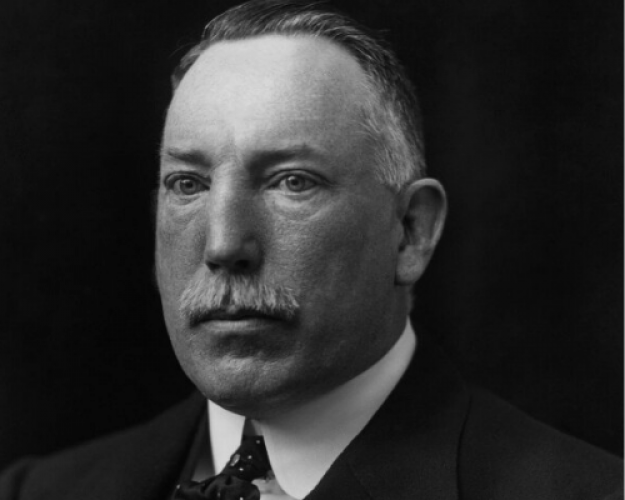
The test question at the forthcoming elections must be this:– ‘Are you a true man? Are these your colours? (Sir James held the Orange handkerchief) or are your colours those of the Union Jack?’ He had never been able to distinguish the difference between the Orange standard and the Union Jack. (Applause.) The point was, ‘Are you a good man?’ in the sense a good Ulsterman prepared with courage and determination to face the burdens which lay ahead. If he was a good man then he (Sir James) said he hoped that the Unionist electors would put him at the top of the poll, and that their majority, when they came together later on, might such as would enable them to work their Government, their Executive, in the same spirit and in the same way as Sir Edward Carson had taught them to approach great questions – in a broad-minded manner, in a spirit of tolerance, and with a single desire to help the democracy of this great province of Ulster.
‘Duty of Women Unionists’: meeting of female voters in Coleraine, 22 March 1921
(Ballymoney Free Press and Northern Counties Advertiser, 24 March 1921)
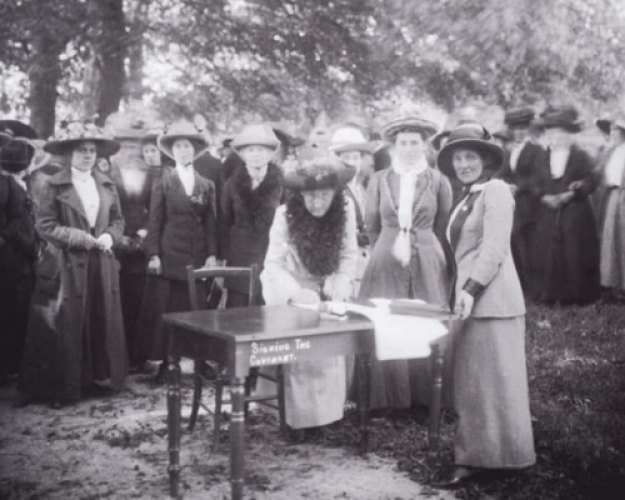
Mrs O’Hara (Laurel Hill), who presided, impressed upon all loyalist voters the importance of exercising the franchise in favour of the selected Unionist candidates at the forthcoming election of members of the Ulster Parliament. Overhanging the six counties there was the terrible big black cloud of Sinn Féin.
Owing to the operation of proportional representation the Unionists would have a smaller majority in the House than would otherwise be the case. Should there be any little carelessness or slackness on the part of loyalist voters, disloyalty to their leaders, or division in the Unionist camp, that majority would disappear. Sinn Féin would then have control, and Ulster would be voted under the Dublin Parliament. If that should happen, God help them! She would not speak in such a doleful tone did she not think that there was still time to avert such a calamity if they worked their very hardest and not only voted themselves, but used their influence in getting their friends also to do so.
‘A call to unionist voters’
(a letter to the editor of the Belfast News-Letter, 16 May 1921)
The Sinn Féiners have announced that they will not attend the Ulster Parliament any more than they have attended the Imperial Parliament since the last election. This is a very clever ruse. They did not attend the Imperial Parliament because the majority there was too great for them to battle with any hope of success.
But circumstances will be different in the Ulster Parliament. The Unionist majority will not be much more than a working one. If the Unionists fail to do their duty at the polls it is possible that the majority in the Parliament will be very small. The Sinn Féiners hope that by saying they will abstain from attendance at Parliament they will make the Unionist voters careless, so careless to say, ‘Well, after all, it does not so much matter whether we vote or not, as the Sinn Féiners will not go to the Parliament anyway.’ Does any sane Loyalist imagine that the Sinn Féiners will refuse to attend Parliament if they find they have such a number of candidates returned as to give them a hope of turning out the Unionists in a snap division of the House, or of upsetting the work of the House by continual obstruction on the part of a very strong minority?
The very fact that Sinn Féiners say they will absent themselves from the House is the very reason why all Unionists should vote for the official candidates, lest their failing to do so may give the enemy such a strong minority as to make legislation by the Unionists almost hopeless. At any rate, this aspect of the situation is worth consideration by all who really desire to ‘save the situation.’ The Sinn Féiners will not hesitate to take the oath any more than the Nationalists if they can accomplish their object. The Nationalists are as Sinn Féin as the Sinn Féiners themselves.
Speech by Irish Conservative Martin Morris (Baron Killanin) in the House of Lords, 16 June 1921
In the course of the debates in this House, when the Government of Ireland Act was passing through it, many suggestions were made as to what should be the size of the area of the Northern Parliament, and as to what probably would be the complexion of the members returned to that Parliament. My recollection is that the very highest figures given in regard to the Northern area were that thirty-two Orangemen would be returned and twenty Nationalists. The results, however, have been very different. We have seen forty Orangemen out of 52 members returned to Parliament in the North of Ireland, only twelve Nationalists being returned. I think that is an interesting fact, and one that is bound to have an effect on the South of Ireland. The South must give attention to it. They must make up their minds what attitude they are now going to take towards that result.
Perhaps I may be allowed to recall the past for a little in reference to the relation of Unionists, on the one hand, and Nationalists on the other, to the formation of a Parliament in the North. The position we Unionists always took up was that we believed, if Home Rule were given, there would have to be partition in Ireland, and that there would have to be a Parliament in the North. We were opposed to that, because we cherished the identity and the unity of Ireland. Unionists wanted to keep Ireland within the Union because we saw that was the only way in which the identity and unity of Ireland could be pre-served. In the past, if you said to a Nationalist: ‘If you press your policy to the bitter end, it will only result in something to which you are opposed, and to which you as Nationalists ought to be more opposed than we as Unionists – namely, the partition of the country’ – the Nationalist would reply: ‘The Northern question is all bluff. It is only action on the part of a handful of people.’ I am quoting words actually used by Nationalists.
What do they say when they find all their preconceived views as to how many Orangemen and how many Nationalists would be returned to the Ulster Parliament have been upset? They are now … up against this fact – that Ulster has asserted herself, and has shown that she exists. Nationalists, however opposed it is to their wishes, their hopes and ideals, are, I submit, bound to recognise it. They cannot get away from it. Over forty Orangemen have been returned to a Parliament now almost established in Ulster, and perhaps they are inclined to be rather too satisfied with themselves. They remind me of ‘Little Jack Horner’ who ‘sat in a corner, and said “What a good boy am I.”’ But we have now to consider these facts, and I submit that the Sinn Féiners and Nationalists must, if they are to deal with the question in a statesmanlike way, take note of the situation as it exists now.
For the last few years it has not been very easy to know to what Party one belonged in Ireland; but if that was the case in the past, the issue now in Ireland is perfectly simple for all Nationalists and Unionists in the South of Ireland. The issue is whether you are in favour of the independence of Ireland, or the unity of Ireland; whether you are going to work for independence, or whether you are going to work for the unity of Ireland and submit every proposal to the test as to whether it will tend towards the unity of that country. What is the attitude of Sinn Féin at present? Since the Election in the North they have given no expression to their views. Do they still say they are in favour of a Republic for Ireland? And if so, do they mean for all Ireland? Do they include Ulster in their demand for a Republic? If not, do they mean that they want a Republic for three-quarters only of Ireland? Are they willing to leave Ulster out, or are they, as I hope they are, willing now to take a more moderate view of the whole situation, give up their demand for independence, and work for what is a greater and more necessary thing – namely, the unity of Ireland.
‘Belfast versus Ireland’: Nationalist take on Northern Ireland’s unionist majority as negotiations begin between the British government and representatives of the Irish Republic
(Freeman’s Journal, 22 August 1921)
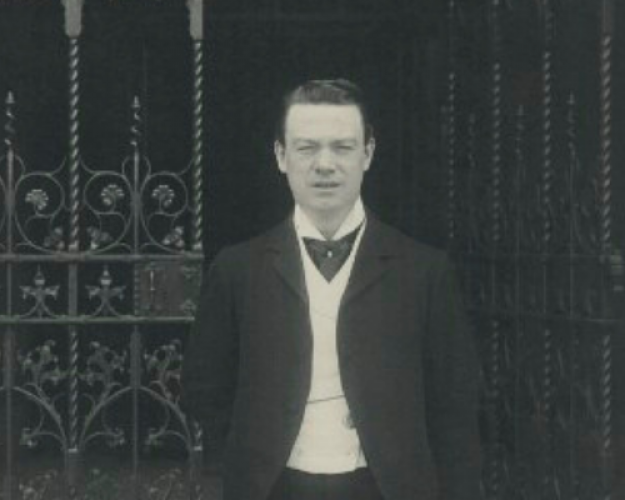
There is a general belief amongst Ulster Nationalists of both sections that N.E. Ulster will occupy a position peculiarly its own if an impasse occurs in the present negotiations … The 450,000 Catholics of the North-East, both Sinn Féiners and Nationalists, are in a position which, it will be conceded, is of the greatest gravity and peril. They are, as it were, an island surrounded by oceans of intolerance.
There is also another consideration – the Northern Parliament is in existence and assembles in September. It will at once proceed to pass measures affecting interests which Catholics hold most dear. The Parliament is a sectarian one and will be actuated by sectarian motives, and will legislate from a sectarian standpoint.
A number of English papers friendly to Ireland, commenting on the Premier’s offer, say that ‘the principle of self-determination has been admitted in the case of Southern Ireland. It cannot be denied in Ulster’s case’. This is exactly what is denied. If ‘Ulster’ as a province had self-determination, it would by a majority throw in its lots with the rest of Ireland. Instead an Orange enclave was artificially created – a portion cut from the side of Ireland – to perpetuate Ascendancy rule. Even of the Six Counties so cut off, two – Tyrone and Fermanagh – have a majority against Partition. If, therefore, self-determination is applied to a portion of Ulster – i.e., to the six counties, it cannot be logically denied to Tyrone and Fermanagh. These two counties stand in relation to the other four as one is to two, while the six counties (including Tyrone and Fermanagh) are to the twenty-six as one to four. Self-determination should be given to Ireland as a Nation, as it was given to Poland, Slavonia, and other small nationalities.
The position of parties in the Six Counties exclusive of Belfast … leaves a majority for the Unionists of only 78,382 in a specially carved-out area. When one recalls the intimidation, and even terrorism, practised in Orange circles during the last election, and bears in mind the fact that several seats had no Nationalist candidate, the small Unionist majority in the Six Counties becomes all the more significant. The Ulster crux is Belfast city, and even there the Nationalists are a fourth of the whole, and if the Protestant Liberals are added to the Home Rulers they form a full third of the population. It is really a case of Belfast versus Ireland.



